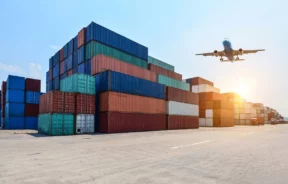Honorable Diplomacy and Conflict Management: Araqchi’s Strategy for Iran’s Future
WANA (August 16) – Seyed Abbas Araqchi, a prominent Iranian diplomat and former senior negotiator in the nuclear talks, has been proposed as the Minister of Foreign Affairs by the new President, Masoud Pezeshkian. Araqchi, with extensive experience in foreign policy, has a comprehensive and balanced plan to manage Iran’s relations with Europe and the United States, as well as to expand ties with other countries.
This program, claimed to be based on dignified interaction and the maximum utilization of Iran’s capabilities, introduces a fresh and realistic approach to Iranian diplomacy.
Interaction with Europe: Dignified and Based on Mutual Respect
One of the main pillars of Araqchi’s plan for Europe is establishing relations based on mutual respect and equality. He believes that interaction with Europe should not only be dignified but also functional and opportunity-driven.
This means effectively capitalizing on opportunities in relations with Europe without compromising Iran’s independence and national dignity.
Managing Hostility with the United States
In dealing with the United States, Araqchi advocates for a more realistic approach. Instead of seeking an immediate reduction in tensions, he emphasizes managing the hostility with the U.S. This management involves countering the hostile policies of the United States and Israel (Occupied Palestine).
Araqchi has a plan to utilize all foreign policy capacities to neutralize and mitigate the impact of sanctions, believing that this goal can be achieved through serious, targeted, and non-protracted negotiations, without compromising Iran’s fundamental positions.
Expanding Relations with the East and Neighbors
Araqchi also has a comprehensive plan to strengthen and expand relations with Eastern countries like China and Russia, as well as emerging economies such as India, Indonesia, South Africa, and Brazil.
This strategy aims to reduce dependence on the West and diversify Iran’s foreign relations. He also places special emphasis on developing and facilitating trade and economic exchanges with neighbors, particularly in border regions.
Utilizing Economic and Geographical Potential
Another strength of Araqchi’s plan is the emphasis on exploiting Iran’s geographical and strategic capacities.
He intends to prevent the depletion of these capacities, particularly in regional transportation and international transit, and to strengthen Iran’s role in energy diplomacy and international infrastructure.

Araghchi Outlines Vision: Strengthening the Axis of Resistance as Core of Iran’s Power
WANA (August 14) – In a meeting of the National Security Commission of the Iranian Parliament, Abbas Araghchi emphasized the importance of strengthening the Axis of Resistance, stating that it is a crucial element of the Islamic Republic’s power. Ebrahim Rezaei, the spokesperson for the Parliament’s National Security and Foreign Policy Commission, discussed the […]
Environmental and Water Diplomacy
Araqchi also gives special attention to environmental issues and water-related crises.
He has drafted plans for regional and international cooperation in this area, aiming to enable Iran to play an active role in addressing environmental challenges and managing water resources.
Support for the Resistance Axis in the Region
Another priority for Araqchi is supporting the Resistance Axis and defending the rights of the Palestinian people. During a session of the Parliament’s National Security Commission, Araqchi emphasized the importance of strengthening the Resistance Axis, calling it a key element of the Islamic Republic’s power.
He firmly supports the unwavering and continuous backing of the Palestinian and Lebanese people and the regional resistance movements in confronting the oppressive and criminal policies of the Zionist regime.
The proposed Foreign Minister believes that “We must create international legitimacy for the actors of the Resistance Axis, help them gain recognition, and ensure they receive international support.”
Domestic and International Challenges
Despite these comprehensive plans, Araqchi faces both domestic and international challenges. Some domestic critics, particularly from the conservative camp, accuse him of being overly lenient in negotiations.
On the other hand, the West continues to view Iran’s relations with Eastern powers like Russia and China with concern.
Revising the Roles of Embassies
Araqchi also intends to reassess the duties of Iran’s embassies and diplomatic missions abroad to ensure these institutions play a more effective role in achieving the country’s diplomatic objectives.
In summary, Seyed Abbas Araqchi’s plans reflect a balanced, multi-dimensional, and forward-looking approach to Iran’s foreign policy.
By emphasizing respectful engagement with Europe, managing hostility with the U.S., and leveraging Iran’s strategic capacities, he seeks to create more sustainable and resilient conditions against international pressures.
If implemented, this approach could lead to improved foreign relations and a reduction in economic and political pressures on Iran.

Araqchi: I Am Committed to the Strategic Action Law, Not a Member of the “New York Group”
WANA (August 12) – Ebrahim Rezaei, speaking to reporters about the session of the National Security and Foreign Policy Commission of the Islamic Consultative Assembly held on Monday morning (August 12, 2024), which was attended by Seyed Abbas Araqchi, the proposed Foreign Minister, said: In this meeting, the proposed Foreign Minister first outlined his biography […]













